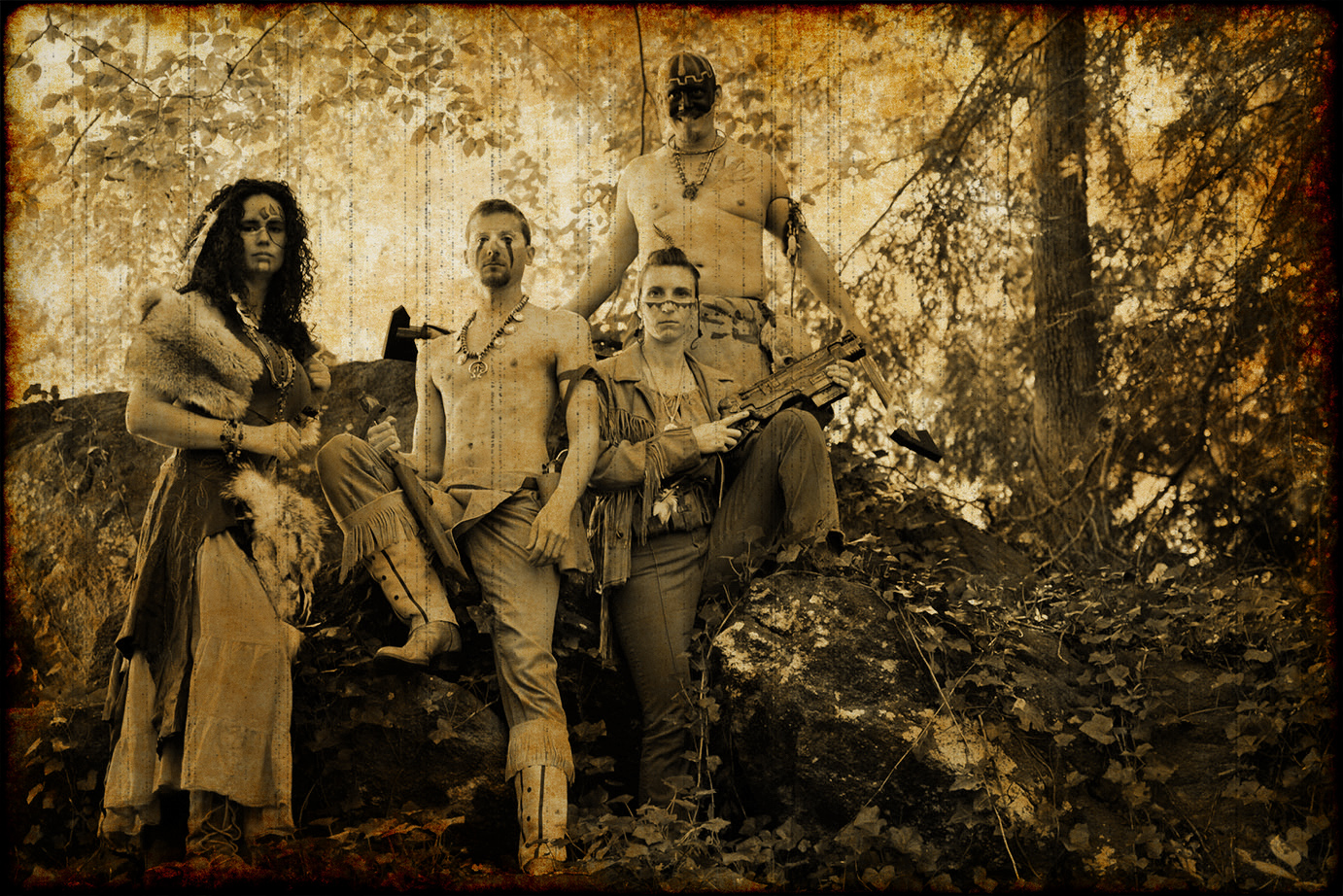
Every seed is awakened and so has all animal life. It is through this mysterious power that we too have our being, and we therefore yield to our neighbors, even our animal neighbors, the same right as ourselves, to inhabit this land.
We have now to deal with another people – small and feeble when our fathers first met them but now great and overbearing. They have a mind to till the soil and their love of possessions is a disease. These people have made many rules that the rich may break but the poor may not. They take their tithes from the poor and weak to support the rich and those who rule.
We must protect the forests for our children, grandchildren and children yet to be born. We must protect the forests for those who can't speak for themselves such as the birds, animals, fish and trees. Every part of all this land is sacred to our people. Every hillside, every valley, every plain and grove has been hallowed by some sad or happy event in days long vanished. The very dust we now stand on responds more willingly to our footsteps than to theirs, because it is rich with the blood of our ancestors and our bare feet are conscious of the sympathetic touch.
We must find a way to dwell side by side. With the strength of the spirits we must bring them to understand their place in the Wheel of Life."
— Awanatu, Chief of the Turtle Tribe, addressing the Council of the Iron Nation 1876
Excerpt from Jeremiah Nix’s interview series for the New York Times
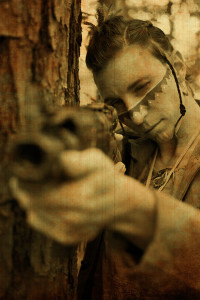 The people of the Iron Nation have endured hardship and oppression for decades. Comprised of the southeastern tribes displaced after the War of 1812 and the northern plains tribes pushed south by their more warlike neighbors, their strength of spirit allowed them to endure and persevere. Shortly before Coggia’s comet appeared, these tribes gathered to perform a ritual known as The Ceremony of the People and then disappeared.
The people of the Iron Nation have endured hardship and oppression for decades. Comprised of the southeastern tribes displaced after the War of 1812 and the northern plains tribes pushed south by their more warlike neighbors, their strength of spirit allowed them to endure and persevere. Shortly before Coggia’s comet appeared, these tribes gathered to perform a ritual known as The Ceremony of the People and then disappeared.
Like a Phoenix from the ashes, three great Tribal Nations rose in the aftermath of the Calamity, The Iron Nation, The Wind Song Nation and the Hollow Nation. Of these, only the tribes of the Iron Nation has maintained relations with The Territory, The Republic of Texas, and the States. The other two Nations waver between wary and outright aggression.
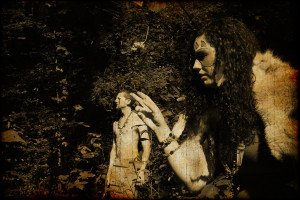 The people of the Iron Nation are deeply spiritual and hold strong ties to nature. Many are natural hunters and trackers, and their knowledge of plants and herbs provide them with an almost supernatural gift for healing. Among their own, they are friendly and effusive with their emotions, but their experiences have caused them to present an impassive face to outsiders.
The people of the Iron Nation are deeply spiritual and hold strong ties to nature. Many are natural hunters and trackers, and their knowledge of plants and herbs provide them with an almost supernatural gift for healing. Among their own, they are friendly and effusive with their emotions, but their experiences have caused them to present an impassive face to outsiders.
The Iron Nation have an abiding mistrust of the City Folk. Those tribes from the southeast know that the wealthy used their influence in Washington to force the tribes from their lands. The Trail of Tears was seen as a great betrayal as many of these tribes supported the fledgling Federation against the British Dominion during the War of 1812. When the Civil War began, the memory of Federation soldiers forcing them west inspired these expatriates to provide scouts to the League, adopting a policy of “the enemy of my enemy”.
Their relationship with the Settlers is more diverse. Before the Calamity, many tribes in The Territory lived side by side with small towns and settlements, traded and even taught some their ways. In the Eastern states, the Settlers pushed their people off of prime land and systematically killed off game.
The Tsung are often viewed with suspicion for their unfamiliar traditions or simply seen as little more than servants to the Settlers and City Folk. The rigid social strata of the Tsung is alien to the more egalitarian Tribes, and the practice of Sorcery is seen as being obsessed with the dead to the detriment of the living.
Interactions with the spirits of nature is an everyday occurrence for the tribes, and mysticism is an integral part of life. This is known as the Way of the Wheel. A famous Wheel-Walker, White Cloud, once expressed this philosophy in the following manner: "... we think of the earth and the whole universe as a never ending circle, and in this circle man is just another animal. The buffalo and the coyote are our siblings; the birds, our cousins. Even the tiniest ant, even a louse, even the smallest flower you can find, they are all relatives." Wheel-Walkers help guide the Iron Nation by interpreting the will of the spirits, advising the Tribal Elders and when called to war, summoning the forces of nature to smite their enemies.
While the people of the tribes have a deep wisdom regarding the natural world, they have a disdain of advanced technology. Though many of the Iron and Wind Song have embraced pragmatic inventions such firearms they have no experience with the newer forms of Gadgeteerin’ and the more scientific aspects of Experimental Medicine. The idea of mining or timbering is anathema to their spiritual beliefs, and this limits their options for Land Plot management.
Common Professions: Hunter, Brave, Tracker, Scout, Medicine Man/Woman, Herbalist, Way Walker, Farmer, Rancher
Inspiration Links:
- Pinterest Collection
- Costuming Resources: Cherokee Beadwork, Crazy Crow, Indian Village Mall
- Movies: Dead Man, Bury My Heart at Wounded Knee, Dances with Wolves, Last of the Mohicans The Calamity Staff would recommend any players considering an Iron Nation character watch the movie Reel Injun, a documentary about the depiction of First Nations people in film. The film traces how the image of First Nations people in cinema have influenced the understanding and misunderstanding of their culture and history.
Non-Player Character Nations
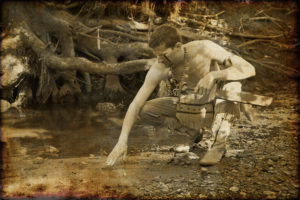 The Wind Song Nation
The Wind Song Nation
The tribes of the Wind Song Nation inhabit the lands along the northern border of the Republic of Texas and the unclaimed southwest territories. They tend to keep to themselves, only occasionally trading with the Texans or the tribes of the Iron Nation. They do not suffer trespass into their lands and violations are met with swift and far reaching vengeance.
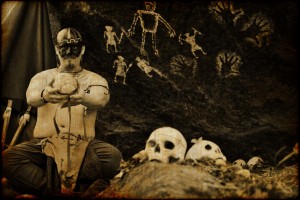 The Hollow Nation
The Hollow Nation
The Hollow Nation are almost considered a myth outside The Territory. They are hostile to any who do not follow their ways and harbor a deep hatred for those who they feel have violated their ancestral lands. Stories of their bloodthirsty practices are used to scare children and often color the impressions those back east have of the other tribes.
Calamity feels very strongly about maintaining respect for the true Native American tribes. The Tribal Nations of our game represent a gross simplification and fictionalization of the tribes as they may have been in our alternate world history. We invite players to research the cultural clothing of the Creek, Cherokee, Chickasaw, Osage, and Sioux tribes and exercise good judgement before creating costumes. Calamity Staff reserves the right to disallow costume elements considered inappropriate.

